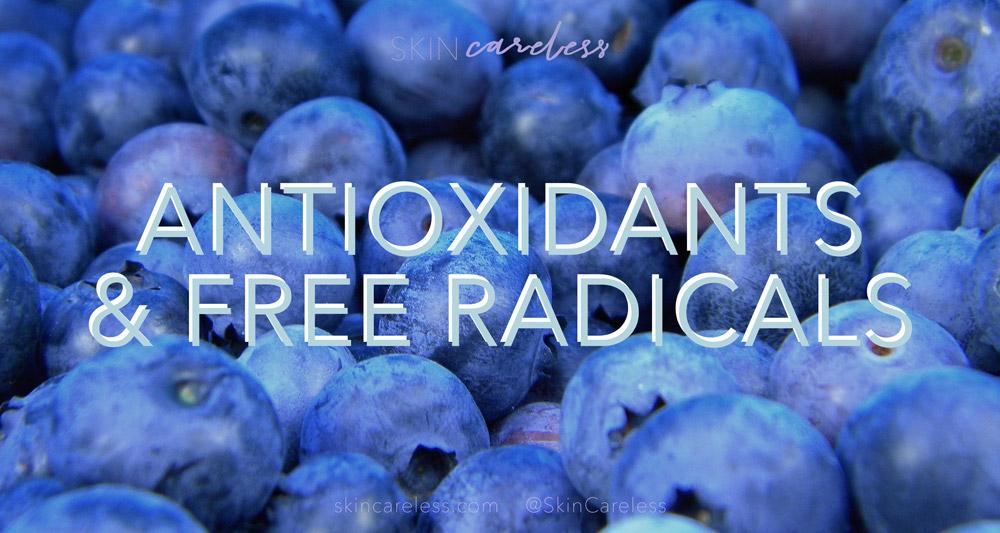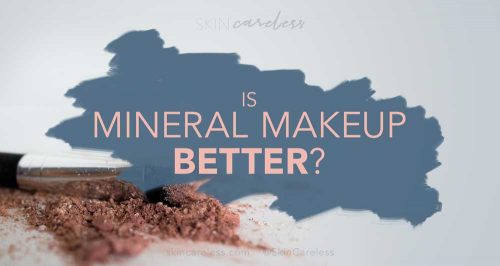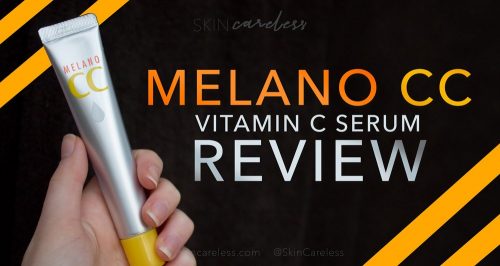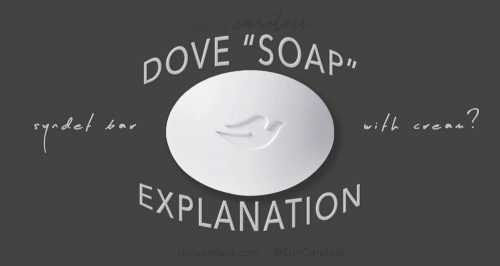Antioxidants. Probably the most wide-spread anti-ageing hit ingredient, and somehow they’ve managed to stick around in our formulas unchanged for ages as other trends came and went
I’d hazard a guess that the average person doesn’t really know what an antioxidant is or does, especially not in relation to their skin.
So what makes antioxidants stand the test of time?
To understand that, we need to look closely at why we age, how our skin and antioxidants work on a scientific level, and some of the huge visible benefits they can offer us. I’ll also give you some recommendations for fantastic antioxidant products you can try to take your skin care routine up a notch. So if you’re interested in learning more, let’s go!
What are antioxidants?
Antioxidants are at the core of preventative anti-ageing. They’re a powerful tool, capable of staving off future skin damage.
They work by preventing damage caused by free radicals in our bodies. In this way they slow down a multitude of age and lifestyle related conditions and help us live longer and healthier. Lucky for us, this also extends to the quality and health of our skin!
The main thing that defines an antioxidant is its atomic tendencies: antioxidants have spare electrons that they don’t need and can give away happily, or is a catalyst or molecule capable of participating in the reaction of free radical molecules that turns them into something else.
Free radicals = cellular damage = ageing
Free radicals exist both in the environment and as produced by our cells, and are the reason antioxidants are so important – they’re the villain. Free radicals are defined by a missing electron.
The damage they cause is thanks to this, causing them to attack other compounds like proteins to steal their electrons and make themselves whole again, or sometimes donate the unneeded electron. The new molecule then becomes a free radical, and the cycle continues. This is called an oxidation reaction.
Free radicals can cause permanent cellular damage to protein like DNA.
This leads to ‘errors’ in our cells, and a reduction in healthy body function. Over time, this degrades the quality of our bodies’ organs and tissues, as they become unable to replicate the same way they used to. This cellular damage is one of the key elements of the ageing process.
What creates free radicals?
You might be wondering if it’s possible to just avoid free radicals. Unfortunately, it’s not that easy. A lot of the things that either trigger free radical production in the body or are free radicals themselves are common, everyday things that are to a degree unavoidable. The list includes:
- stress
- smoke
- pollution
- living (natural body functions e.g. metabolism)
- poor diet
- medications
- alcohol
How antioxidants work to counteract free radicals and ageing
If free radicals are more or less unavoidable, then we need to turn to something else to help buffer our bodies against the onslaught of daily harm. That’s where antioxidants come in.
The job of these micronutrients is to ‘neutralise’ free radicals, preventing them from causing any damage to our cells in the first place.
Each different antioxidant can do this in one of several ways. Certain antioxidants donate their aforementioned spare electrons to the electron-hungry free radicals to interrupt the oxidation chain reaction and stop cellular damage from spreading. Others attach to heavy metals in the body that speed up oxidation reactions, rendering them useless. Others still act as the catalyst of reactions between pre-existing compounds in the body to neutralise free radicals. Though the many different kinds of antioxidants are all slightly different, their overall result is the same (if you’ve got a chemistry-inclined mind, there’s more detailed breakdowns to be found).
What skin benefits and results do antioxidants give?
It’s all well and good that antioxidants will slow down overall ageing and damage to our bodies, but what about our skin?
Now that science class is out of the way, we can get to the good stuff.
As a result of neutralising cell-damaging free radicals in the body, antioxidants prevent free-radical-induced breakdowns of tissue and cell function that support the skin.
Over time, damage in these important cells leads to the following issues:
- fine lines & wrinkles
- texture
- pigmentation
- loss of firmness & elasticity
- loss of volume
- skin cancer
(Yeah, that’s pretty much all of the possible issues.)
Basically, by treating the root cause of all these issues (cellular damage), antioxidants keep your skin looking as youthful it does now for as long as possible.
And – bonus benefit – antioxidants can also help to preserve and stabilise other formulas, meaning your antioxidant-boosted products could work better for longer.
Recommended antioxidant ingredients and products
Now it’s time to take what you’ve learnt and apply it (pun intended) to your routine and diet to reap the benefits of antioxidants. We already produce all sorts antioxidants naturally inside us (like glutathione, lipoic acid, uric acid, carotenes, ubiquinol and catalase), and also rely on eating several others (Vitamin A, C and E). But the more free radicals your lifestyle produces, the more you should aim to give your body an extra helping of antioxidants.
For aesthetic purposes, nothing beats using antioxidants topically to help ease the pressure that daily exposure to the elements and pollution puts on our skin. That way it’s right there where the damage is happening.
Vitamin C
Perhaps the most well-known antioxidant product is Vitamin C serum, touted for brightening pigmentation and increasing collagen production. The Ordinary, Mad Hippie, and more offer these serums, and right now I’m using (and reviewing) cult-favourite Melano CC serum. Vitamin C must be at the correct pH to work, so do your research before you buy any Vitamin C product!
Alpha-Lipoic Acid
As my antioxidant of choice, I personally use The Ordinary’s Alpha-Lipoic Acid (ALA) – review within. ALA is said to reduce inflammation and regenerate other antioxidants like vitamins C, E and glutathione. This product is a runny, slightly smoky scented liquid that feels warm and tingly on application. And at a super cheap price, why not?
Niacinamide
Niacinamide aka. Vitamin B3 is said to reduce textural concerns, acne, redness and oiliness. You can find it in Deciem’s Hylamide Pore Control Booster and The Ordinary Niacinamide 10% + Zinc 1% – and in my current skin care routine.
Resveratrol
Resveratrol (available from SkinCeuticals and Caudalie) is what gives red wine its reputation for being good for heart health. It’s thought to be one of the most effective antioxidants around, but it plays hard to get and can be tricky to stabilise in a skin care formula, making it a more expensive option.
Vitamin A (retinol)
And finally, Vitamin A, the king of anti-ageing. While in most forms it’s usually not technically an antioxidant, I think it warrants a mention in this post. Found under the guise of retinaldehyde, retinol, retinoid and tretinoin, this amazing ingredient teaches your skin cells how to be healthy again, reversing acne, texture, wrinkles, pigmentation and loss of volume. I hear great things about The Ordinary’s Granactive Retinoid 2% but there are tons of options out there.
And as always, remember to always research your products before buying – find out the percentages that have yielded results, whether these ingredients need certain environments like an acidic pH or a stabilising ingredient, and see what prices are fair and reasonable.
Internal antioxidant supplementation/diet suggestions
Antioxidants are straight up essential for whole-body health. And a constant supply of body-wide antioxidants provides on-demand protection for all your organs, including your skin. It’s a good idea for your health anyway to have a varied diet, and trying to eat as many different kinds of antioxidants as you can certainly encourages this!
The big dietary antioxidants to aim for are:
- vitamin c
- vitamin e
- carotenoids (yellow, orange and red pigments)
- copper
- selenium
(source)
I personally LOVE green tea the most because it tastes great, can be drunk at any time and is absolutely packed with antioxidants – specially, catechin. Matcha is the best as it is the least processed. But the most important thing is that you’re eating a variety of foods that you enjoy!
Some more suggestions for naturally antioxidant-rich foods to incorporate into your diet are:
- berries
- carrot
- spinach
- broccoli
- tomato
- onion
- capsicum
- cacao
- flaxseeds
- lentils
- garlic
- grapes
- tree nuts






[…] most often see ALA sold as an internal supplement for whole-body antioxidant benefits, and one that can cross the blood-brain barrier to provide brain health support, nervous system […]
[…] Antioxidants […]
[…] as redness, blotchiness, itchiness, swelling etc. But also, deeper down, chronic inflammation creates free radicals (a sort of particle thief) which damage the cells before the beginning of their life, not even allowing them a fighting chance […]
[…] is currently considered the pinnacle of anti-ageing. It’s a potent antioxidant that can prevent sun damage and trigger the growth of healthier skin. But it has the added benefit of being a fantastic pigmentation treatment, restoring your melanin […]
[…] their electrons, ‘oxidising’ and weakening and killing them in much the same way as the free radicals I’m always going on about. This treats the infection at the root. And unlike antibiotic treatment, there’s no chance of […]
[…] seems unnecessary to the formula, however upon research it does contain anti-inflammatory rutin, antioxidant anthocyanins, and anti-pruritic (redness) capabilities which are a nice addition so I don’t think […]
[…] up late. The resulting stress, alcohol, pollution and sun exposure have been in the background, silently producing free radicals for years. (Plus, stress leads to hormone imbalances – it’s a vicious […]
[…] There are so many causes of damage and thankfully equally as many wonderful reasons to use antioxida… antioxidants’ only goals in life are to soak up the free radicals that are barraging you all day long and keep you functioning at your best. That means keeping baby-butt smooth skin for longer – yes please! […]
[…] of antioxidants in one product, giving better results to maximise the anti-ageing effect. Plus, antioxidants are one step that is investing in the long-term health of your skin – so you’ll want to make it […]
[…] meaning when exposed to water it creates free radicals that trigger the chain reaction of oxidative damage (much like smoking and UV exposure do). This is a fancy way of saying they damage and kill […]
[…] in the bacteria are easily excited by light. Too much and they’ll produce oxygen and like in how free radicals badly age our cells, this will kill the bacteria. It’s a highly safe and effective way of eliminating acne bacteria […]
[…] As if being anti-ageing thanks to antioxidants wasn’t enough, green tea is not only tasty but extremely helpful in treating rosacea and other inflammatory skin conditions. The key is the polyphenols and epigallocatechin gallate, found in green tea, that promote deep healing and even fight ageing. […]